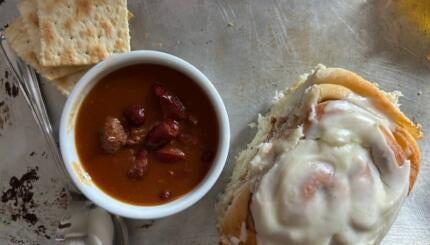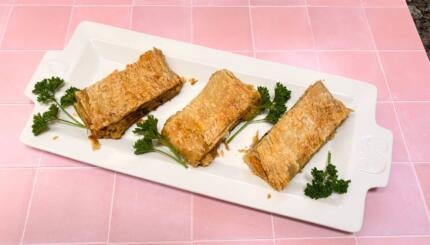The classic Israeli breakfast includes a full smorgasbord of cheeses with options to dip, spread, crumble, toss or simply pick up with your fingers and place into your mouth. If you’ve ever had an Israeli breakfast, whether it be on a kibbutz, in a cafe or at a hotel, you’ve probably been served Israeli cheese.
Archaeological sites going back to 7,000 BCE show that the domestication of sheep and goats could have led to the development of the land’s first cheeses. These would have been soft and white cheese, with the harder and yellow cheese only being introduced in Israel in the 1800s and 1900s.
Israelis still often refer to cheese in these simple terms — white or yellow, hard or soft. Don’t be fooled by the description, Israeli cheeses are anything but simple, coming in many shapes, sizes, colors and textures.
From regional varieties to cheese made “only in Israel,” I’ve rounded up the best of Israeli-made staples and local favorites worthy of a spot on your next cheese board.
The Nosher celebrates the traditions and recipes that have brought Jews together for centuries. Donate today to keep The Nosher's stories and recipes accessible to all.
Labneh
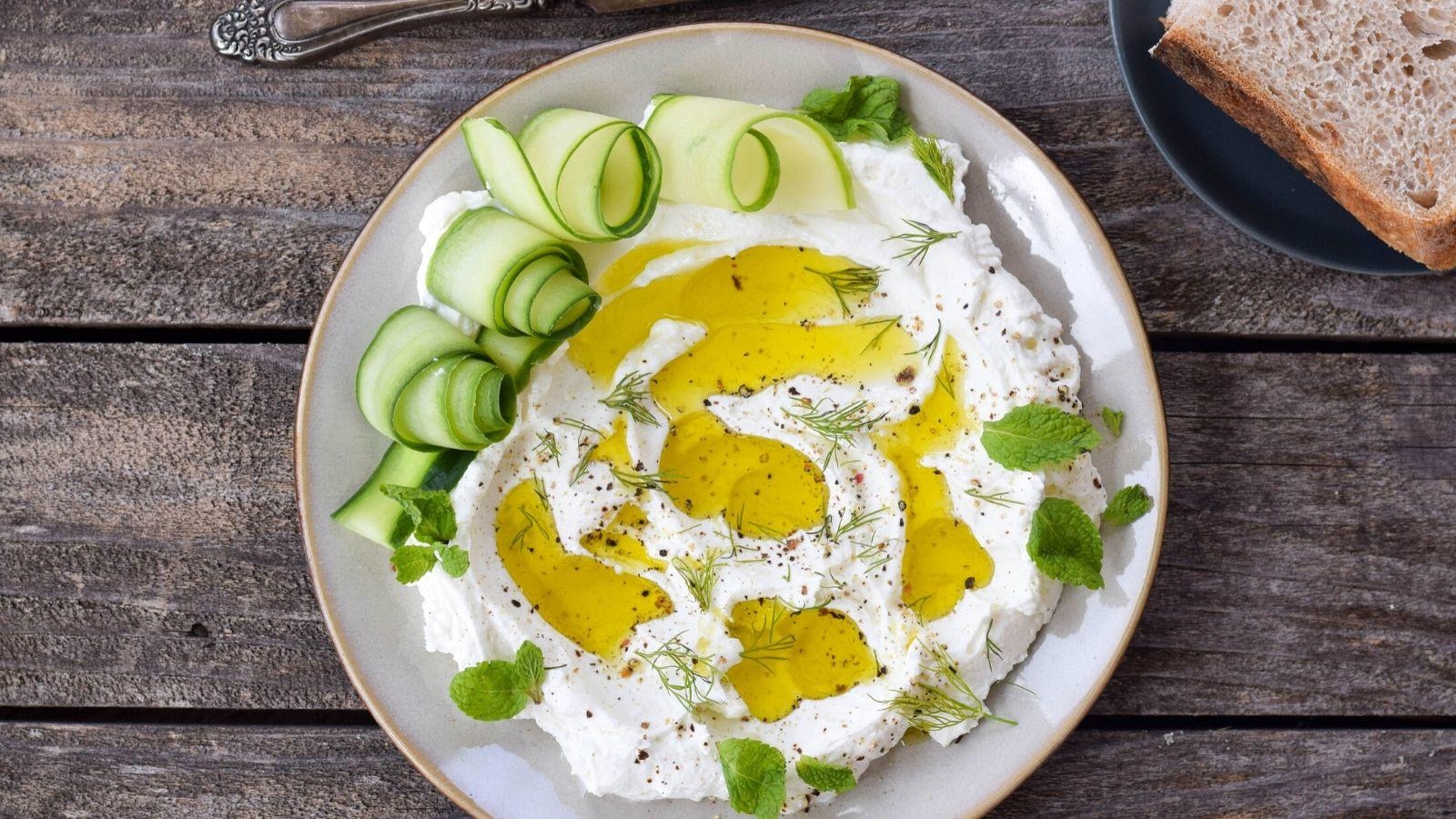
A smooth and creamy cheese, labneh is a staple in the Israeli kitchen and can be eaten any time of day. Falling under the category of a white and soft cheese, labneh is made from strained yogurt and is popular in the Middle East and Eastern Mediterranean. Mass-produced labneh is typically prepared using cows’ milk yogurt, although traditional and artisanal labneh can be prepared using goats’ milk, producing a tangier flavor.
Due to its popularity in the Levantine region, you can easily buy labneh at most Middle Eastern markets. However, if you’re looking to dip your toes (or veggies) into the cheesemaking space, labneh is a great place to start. Give our recipe a try!
Whether store bought or made at home, top your labneh with those Israeli spices that you’ve been waiting to use, starting with a drizzle of olive oil followed by a sprinkle of sumac or za’atar.
Tzfatit
Considered one of the first cheeses developed in modern day Israel, Tzfatit is a brined cheese named for its home city of Tzfat (aka Safed). The cheese was originally made of sheeps’ milk and developed by the HaMeiri Dairy, a sixth-generation, family-run dairy, founded in 1840 by Persian immigrants. With a high moisture content, Tzfatit is slightly spongy yet silky in texture and was traditionally molded in rattan baskets, which left a basket imprint on the fresh cheese. Today, mass-produced Tzfatit is most commonly made with cow’s milk and retains its distinct appearance as it is sold in plastic baskets.
Cottage Cheese
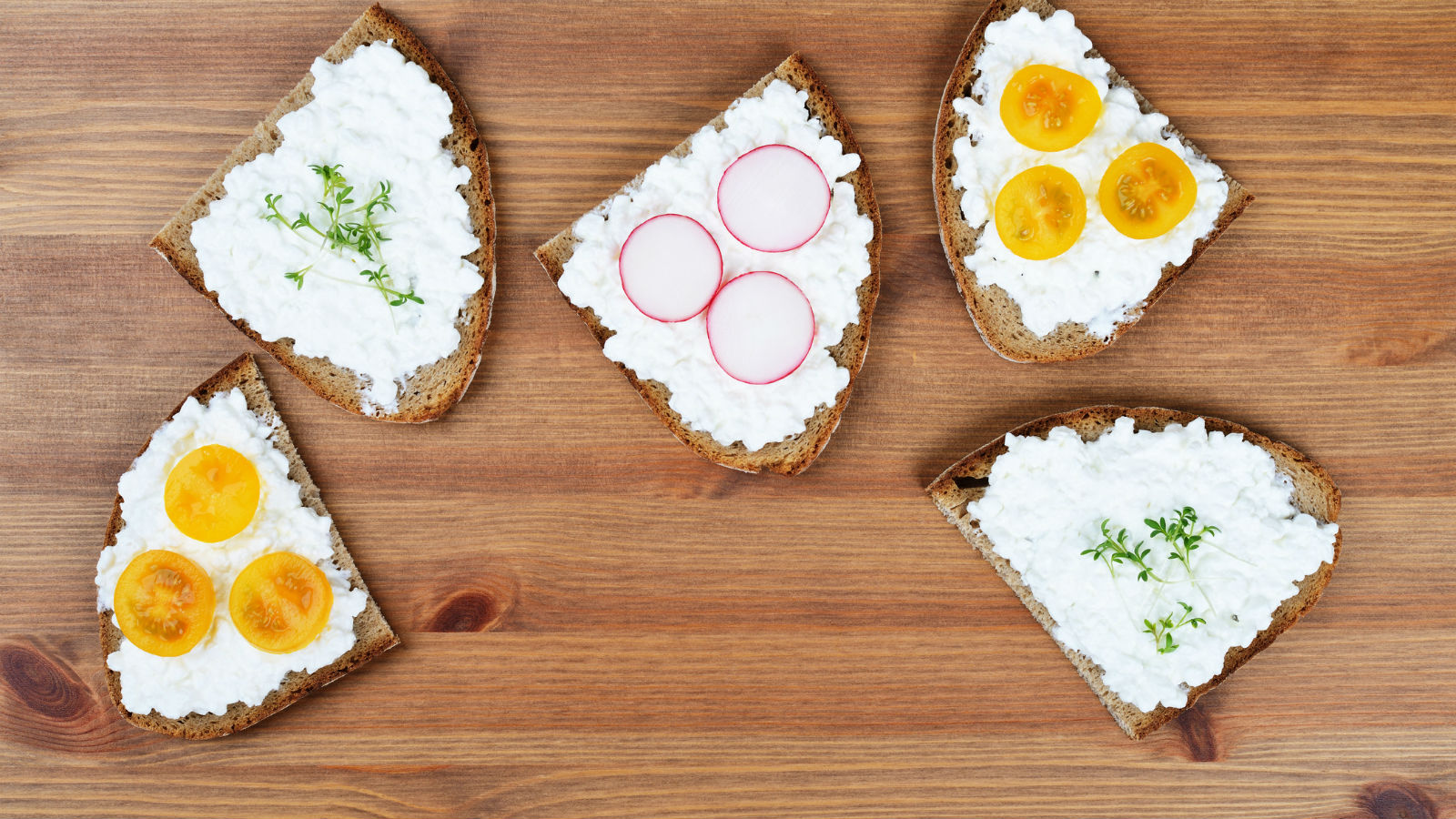
Cottage cheese is such a staple food in the Israeli household that, in 2011, the public took to the streets over a price hike! “The Cottage Cheese Protests” addressed the rising cost of cottage cheese and sparked a boycott of the beloved cheese, ultimately leading to the price lowering.
Sold in grocery stores with fat content ranging from 0-15%, Israeli cottage cheese is a common any-time-of-day item that can be the star of a lighter meal, served on or alongside toast and vegetables including tomato, avocado and cucumber.
To eat cottage cheese like an Israeli, opt for a fuller fat variety, scoop and gently spread on a piece of toasted bread, and top with your sliced vegetable of choice and a sprinkling of salt.
Yellow Cheese
In Israel, “yellow cheese” is pretty synonymous with semi-hard cheese that is made from cow’s milk. One of the most popular yellow cheeses is Emek, produced by the Israeli food company Tnuva. Emek is a light yellow, mild-flavored cheese that has long been a staple in the Israeli diet, with a recipe that dates back to 1942. It can be used on pizzas or grilled cheese sandwiches (known as a “toast” in Israel) and is most comparable in both use and taste to a mild Cheddar or a young Gouda. The cheese was developed in an effort to replicate a European-style cheese, as soft and white cheeses were the more traditional cheeses available due to Israel’s warm climate. Gilboa cheese, slightly more mature than Emek yet is still mild, is another popular yellow cheese.
Israeli Feta
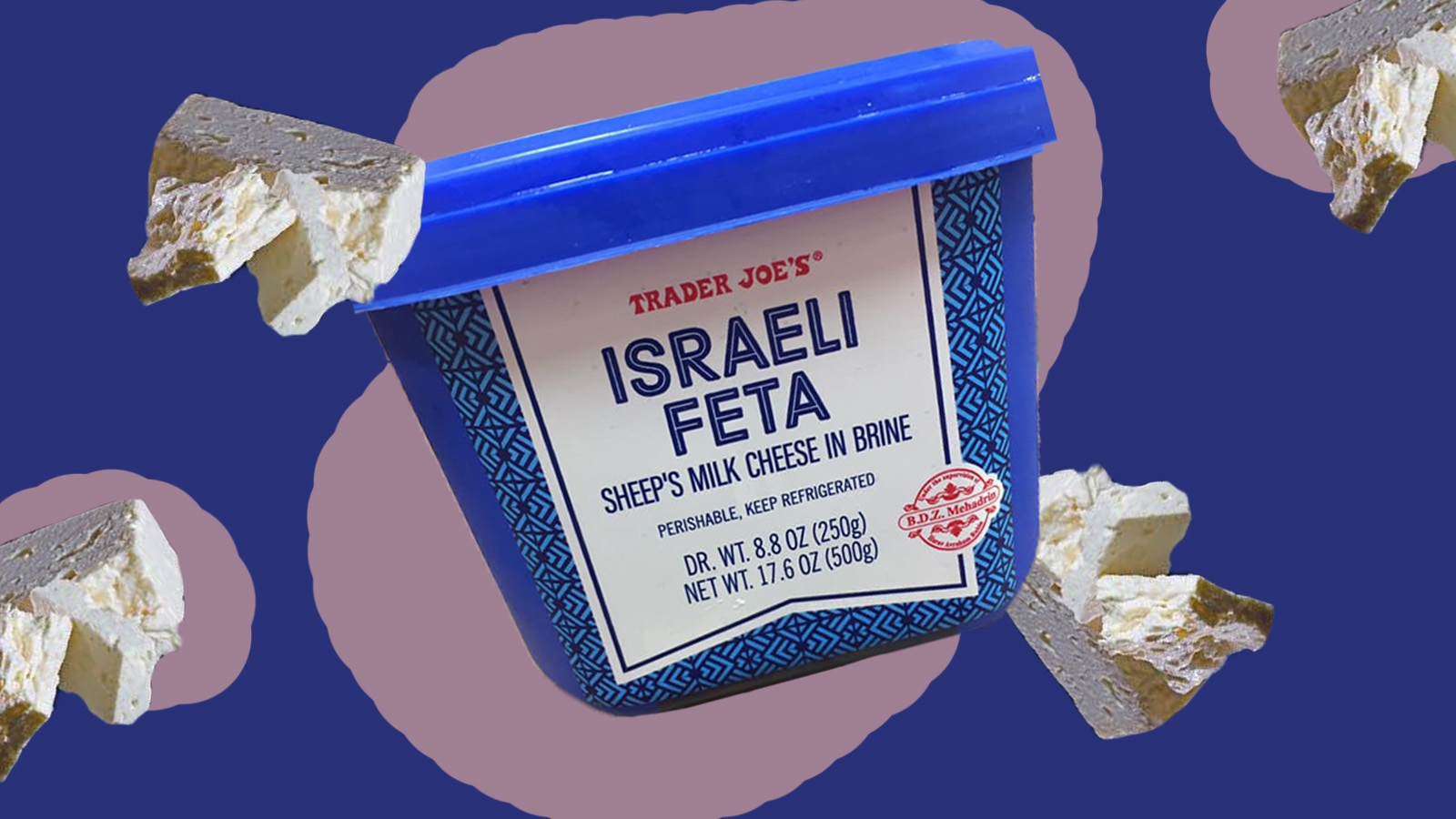
Israeli feta is a mild, salty (but not overly so) and crumbly cheese that works perfectly in salads. Not quite as crumbly as Greek feta, Israeli feta can be easily sliced to jazz up a sandwich. Israeli feta is often made from goat or sheep’s milk when produced on a small scale, and more commonly with cow’s milk when mass produced. Whether artisan or store bought, Israeli feta pairs beautifully with watermelon, making for a refreshing and replenishing summer snack.
For another soft, brined white cheese that is even saltier and creamier than Israeli feta, give Bulgarian cheese a taste.
No need to fret if your mouth is watering but you don’t have a trip to Israel planned. If you live near a Trader Joe’s we highly recommend you try their Israeli Feta made from sheep’s milk so you can start feasting like an Israeli at breakfast time!
This article was produced as part of The Nosher’s Jewish Food Fellows Program, which aims to diversify the voices telling Jewish food stories in media spaces.


